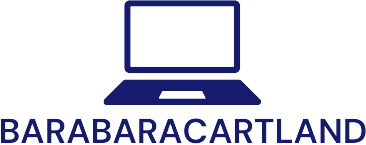Table of Contents
ToggleIn a world where “How do you say ‘where’s the bathroom?’” can make or break a vacation, language learning for adults has never been more essential—or entertaining. Forget the notion that only kids can pick up new languages faster than a toddler can throw a tantrum. Adults have the power to learn, connect, and even impress their friends with a few well-placed phrases.
The Importance Of Language Learning For Adults
Language learning offers adults numerous advantages, from improving cognitive functions to enhancing social interactions.
Cognitive Benefits
Research shows that learning new languages boosts brain health. Adults engaging in language studies experience improved memory and problem-solving skills. Language learning stimulates multiple brain areas, promoting neuroplasticity. This mental exercise helps maintain cognitive functions, including attention and critical thinking. Studies indicate bilingualism can delay the onset of dementia by several years. Adults who learn languages also increase their mental agility, enabling quicker decision-making.
Social Benefits
Language skills enhance social interactions and cultural understanding. Adults who speak multiple languages can connect with diverse communities. Social relationships deepen when individuals converse in their desired language. Enhanced communication fosters empathy and appreciation for different cultures. Engaging in language exchange programs allows adults to meet new people while learning. Quoting studies, those proficient in a foreign language experience broader career opportunities and personal growth. Social gatherings become more enriching through effective communication skills.
Effective Methods For Language Learning
Language learning for adults benefits from various methods that enhance the experience and effectiveness of acquiring new skills.
Immersive Learning
Immersive learning creates a deeper connection with the language. Engaging in environments where the target language is spoken fosters natural acquisition. Traveling to countries where the language is prevalent provides authentic interactions. Participating in local cultural activities exposes learners to practical usage. Integrating language into daily routines boosts familiarity and comfort. Adults who practice speaking with native speakers often experience rapid improvement. Social media platforms also offer opportunities to connect with others and practice conversational skills.
Online Courses
Online courses deliver flexible and accessible learning options. Many platforms provide structured lessons tailored for adult learners. Users can choose from various formats, including videos and interactive exercises. Live streaming classes facilitate real-time engagement with instructors and classmates. Recorded sessions allow for repeated practice at individual pace. Language apps often supplement traditional courses by offering daily exercises and quizzes. Structured curriculums help track progress, ensuring learners stay motivated and focused.
Common Challenges In Language Learning
Language learning presents several challenges for adults. Understanding these hurdles can facilitate a smoother learning journey.
Time Management
Adult learners often juggle work, family, and social commitments, making it difficult to allocate time for language study. Prioritizing language learning within busy schedules poses a significant challenge. Many struggle to find consistent study time amid daily responsibilities, which can slow progress. Setting specific weekly goals can help maintain focus. Utilizing time-saving resources, such as mobile apps or bite-sized lessons, can make learning more manageable. Creating a routine that seamlessly integrates language practice into daily life enhances efficiency.
Motivation Issues
Maintaining motivation stands as a common obstacle in language learning. Adults frequently experience periods of decreased enthusiasm, particularly when progress seems slow. Establishing clear, attainable objectives can help sustain drive. Finding a community or language partner might also provide the necessary encouragement and accountability. Celebrating small achievements reinforces positive feelings, cementing progress. Additionally, exploring practical applications of language skills, like travel or connecting with speakers, can invigorate interest. Making learning fun and engaging remains crucial for long-term success.
Resources To Enhance Language Learning
Many resources exist to support adult language learners. These tools can increase engagement while improving fluency and comprehension.
Apps And Software
Language learning apps provide structured lessons tailored for adults. Popular options include Duolingo, Babbel, and Rosetta Stone, all of which offer flexible schedules. Progress tracking features ensure users stay motivated. Many of these apps incorporate gamification, making learning enjoyable. Engaging with native speakers through platforms like HelloTalk also enhances conversational skills. Adult learners benefit from interactive exercises that reinforce vocabulary and grammar, allowing for practical application in daily conversations.
Books And Audio Materials
Books remain a fundamental resource for language learners. Selected titles like “Fluent Forever” by Gabriel Wyner and “The New Penguin Russian Course” offer strategies for mastering new languages. Audio materials, such as podcasts and audiobooks, also play a significant role in language acquisition. Utilizing resources like Pimsleur and Audible helps improve listening comprehension. Adult learners can immerse themselves in stories or lectures, enhancing vocabulary and pronunciation. Regular practice with diverse materials fosters deeper connections to the target language, promoting sustained learning and enjoyment.
Tips For Successful Language Learning
Successful language learning requires strategic approaches and consistent effort. Implementing specific techniques can significantly enhance the learning experience.
Setting Realistic Goals
Establishing achievable objectives is crucial for adult learners. Setting short-term milestones, like mastering essential vocabulary or phrases, fosters a sense of accomplishment. Keeping goals specific and measurable helps track progress effectively. For example, aiming to learn 20 new words weekly provides a clear target. Evaluating goals frequently allows learners to adjust their plans based on their pace and understanding. Focusing on relevant topics linked to personal interests makes learning more enjoyable.
Practicing Consistently
Regular practice solidifies language skills. Dedicating a small amount of time daily, such as 15-30 minutes, ensures steady improvement. Incorporating language practice into daily routines, like listening to podcasts during commutes or reading articles before bed, makes learning seamless. Engaging with native speakers through conversation exchanges provides invaluable real-world experience. Joining local language clubs or online communities fosters motivation and accountability. Finding engaging content, such as movies or music in the target language, enriches practice sessions and reinforces learning.
Language learning for adults opens up a world of opportunities. It not only enhances travel experiences but also enriches social interactions and cultural understanding. Embracing the journey of learning a new language can lead to personal growth and improved cognitive abilities.
By prioritizing language study and utilizing available resources, adults can overcome common challenges and maintain motivation. Engaging with native speakers and joining supportive communities fosters a deeper connection to the language. With the right strategies and a focus on enjoyment, adult learners can achieve fluency and enjoy the many benefits that come with it.




